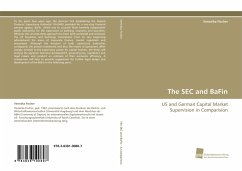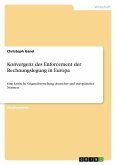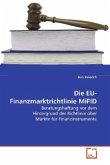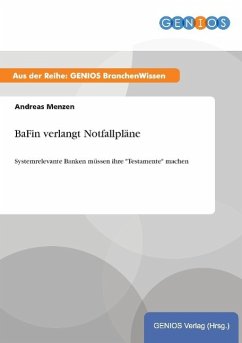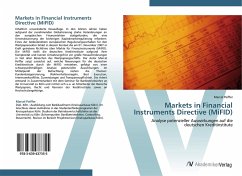To the point four years ago, the German "Act Establishing the Federal Financial Supervisory Authority" (FinDAG) provided for a one-stop financial services agency, BaFin, which was to succeed three formerly independent public authorities for the supervision of banking, insurance and securities. Whereas this on-stop-shop approach has been both acclaimed and criticized, the US Securities and Exchange Commission from its very beginning administered the areas of corporate finance, market regulation and investment. Although the missions of both supervisory authorities correspond, the powers transferred and thus the means of operations differ sharply. Limited to the supervisory power for capital markets, the thesis will analyse the agencies' historical development, governing law, operations and legal means and conduct an estimate of their economic efficiency. A comparison will help to provide suggestions for further legal design and development of the BaFin in the following years.
Bitte wählen Sie Ihr Anliegen aus.
Rechnungen
Retourenschein anfordern
Bestellstatus
Storno

